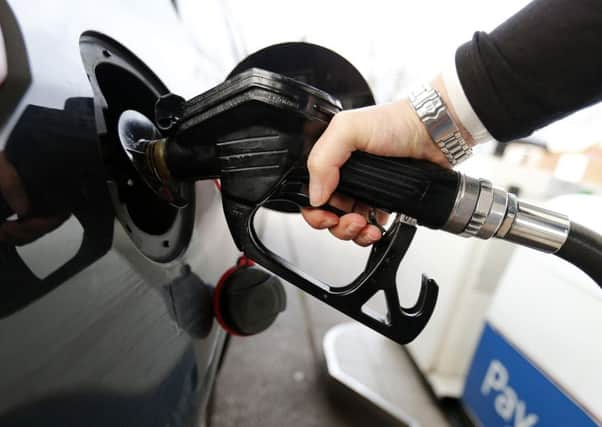Chancellor takes three-quarters of what we pay at fuel pumps


A dip in pump prices has resulted in 74 per cent ending up with the Treasury, analysis by motoring research charity the RAC Foundation showed.
The figure has hovered around this level since the start of the year, the research found.
Advertisement
Hide AdAdvertisement
Hide AdIt is the first time since April 2004 that it has been so high.
For petrol, the proportion of tax is also 74 per cent – the most since January 2009.
Fuel duty has been levied at a flat rate of 57.95 pence per litre (ppl) since 2001, while VAT is charged at 20 per cent on both the price of the product and the fuel duty.
Last month, the average price of diesel was 101.18ppl, while petrol was 101.93ppl.
Advertisement
Hide AdAdvertisement
Hide AdOil prices have fallen some 70 per cent since the summer of 2014 due to oversupply and falling demand from emerging nations such as China.
Steve Gooding, director of the RAC Foundation, said: “It is true motorists have benefited recently from falling oil prices but the biggest driver of what we pay at the pumps is not Opec or the big oil companies but the Chancellor.
“In the unlikely event fuel retailers wanted to give petrol and diesel away for free they couldn’t. Motorists would still pay 69.5p a litre on the forecourts: 57.95p in fuel duty and 11.6p in VAT.
“Three-quarters of the forecourt prices paid by motorists goes straight into the Treasury’s coffers.”
Advertisement
Hide AdAdvertisement
Hide AdMr Gooding urged the Government not to respond to falling pump prices by raising fuel duty in next week’s Budget.
“The cost of transport is already the biggest household expense bar none and a significant cost for business too,” he said.
“Will raising duty really get us – individuals and the economy – where we need to be?”
The study found that fuel duty revenue reached £27.4 billion in 2015, up £0.3 billion on the previous year due to more fuel being sold.